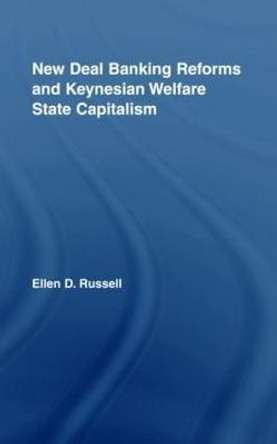Description
In the historical narrative that prevails today, the New Deal years are positioned between two equally despised Gilded Ages-the first in the late nineteenth century and the second characterized by the world of Walmart, globalization, and right-wing populism in which we currently live. What defines these two ages is an increasing level of inequality legitimized by powerful ideologies, namely, Social Darwinism at the end of the nineteenth century and neoliberalism today. In stark contrast, the era of the New Deal was first and foremost an attempt to put an end to inequality in American society. In the historical longue duree, it appears today as a kind of golden age when policymakers and citizens sought to devise solutions to the two major "questions"-labor on one side, social on the other-that were at the heart of the American political economy during the twentieth century.
Capitalism Contested argues that the New Deal order remains an effective framework to make sense of the transformation of American political economy over the last hundred years. Contributors offer an historicized analysis of the degree to which that political, economic, and ideological order persists and the ways in which it has been transcended or even overthrown. The essays pay attention not only to those ideas and social forces hostile to the New Deal, but to the contradictions and debilities that were present at the inauguration or became inherent within this liberal impulse during the last half of the twentieth century. The unifying thematic among the essays consists not in their subject matter-politics, political economy, social thought, and legal scholarship are represented-but in a historical quest to assess the transformation and fate of an economic and policy order nearly a century after its creation.
Contributors: Kate Andrias, Romain Huret, William P. Jones, Nelson Lichtenstein, Nancy MacLean, Isaac William Martin, Margaret O'Mara, K. Sabeel Rahman, Timothy Shenk, Elizabeth Tandy Shermer, Jason Scott Smith, Samir Sonti, Karen M. Tani, Jean-Christian Vinel.
Arguing the New Deal order is a product of a particular set of political institutions, social movements, ideological propensities, and legislative initiatives, Capitalism Contested offers an analysis of the degree to which that order persists and the ways in which it has been transcended or overthrown.
About the Author
Romain Huret is a professor at the School of Advanced Studies in the Social Sciences in Paris. He is author of numerous books, including American Tax Resisters and The Experts' War on Poverty. Nelson Lichtenstein is Distinguished Professor of History at the University of California, Santa Barbara, where he directs the Center for the Study of Work, Labor, and Democracy. He is author or editor of numerous books, including The Port Huron Statement: Sources and Legacies of the New Left's Founding Manifesto and The Right and Labor in America: Politics, Ideology, and Imagination, both available from the University of Pennsylvania Press. Jean-Christian Vinel teaches American history at the University of Paris Diderot. He is author of The Employee: A Political History, also available from the University of Pennsylvania Press.
Reviews
An impressive collection of well-researched, pointed, and thought-provoking essays. * Howard Brick, author of Transcending Capitalism: Visions of a New Society in Modern American Thought *
Book Information
ISBN 9780812252620
Author Romain Huret
Format Hardback
Page Count 360
Imprint University of Pennsylvania Press
Publisher University of Pennsylvania Press







